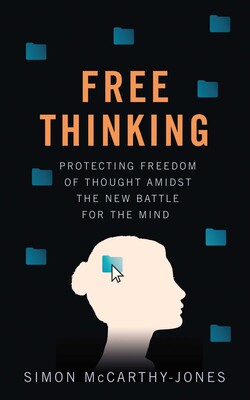
Introduction
Simon McCarthy-Jones is Associate Professor of Psychiatry at the Trinity Institute of Neuroscience, Trinity College Dublin. An expert in auditory verbal hallucinations, or ‘hearing voices’, he has also written a popular book on the nature of spite and its place in human culture.
In October 2023, McCarthy-Jones published Freethinking: Protecting Freedom of Thought Amidst the New Battle for the Mind. I previously reviewed this book (under its old title, Battle for Thought) for the Literary Review, together with Free Your Mind: The New World of Manipulation and How to Resist It (2023), by Laura Dodsworth and Patrick Fagan.
The below interview with McCarthy-Jones continues the Freethinker’s series of reflections on different aspects of free thought. Last Friday we published an interview with the human rights lawyer, Susie Alegre, about her book on ‘freedom to think’ as a human right. In February last year I interviewed Laura Dodsworth, whose views on free thought were shaped by her perspective as a journalist and critic of the Covid lockdowns.
In this interview, conducted via Zoom, McCarthy-Jones gives a psychologist’s perspective on free thought. We explore his idea of thinking as a shared process, as well as the threats that big tech poses to free thought, the pressure which public morality can put on our thinking, and the question whether our societies are in need of a ‘redemocratisation of thought’.
~ Emma Park, Editor*
The Freethinker: What are your academic interests within psychology, and how did you come to write Freethinking?
Simon McCarthy-Jones: For about a decade, my main area of research was auditory verbal hallucinations: the experience of hearing voices. A lot of people I talked to had been through child sexual abuse. So I started studying that area, looking at the effects of child sexual abuse on the brain, its impact upon physical and mental health, and more recently, thinking about how we can try and prevent child sexual abuse.
My interest in freedom of thought initially came more from personal experience than professional interest. In 2017, I found my mind captured to a degree I was uncomfortable with by Facebook. I found myself thinking about checking Facebook at all hours of the day, and it became very intrusive and disruptive. I was lecturing on the behavioural science principles that underlie the way Facebook grabs our attention, but it is one thing knowing about how it works, and quite another experiencing it. I was profoundly shocked by how powerful Facebook’s pull over me was.
A number of legal scholars at the time were writing about freedom of thought, in relation both to the digital world, and to ideas of cognitive liberty. And so I started to delve into the right to freedom of thought. When I did, I assumed that freedom of thought, like freedom of speech, would be extremely well defined by the courts, and it just was not. This bewildered me, because historically, free thought has been lauded for centuries – and yet this fundamental human right was not elaborated in the law at all.
That was exciting, because there was the opportunity to have some influence in developing the right along with the rest of the scholarly community. But that excitement soon changed into worry, because, as an absolute human right, freedom of thought looked as though it could have the potential to steamroll over any other concern, and become a powerful tool of lawfare. So I was concerned with how we could prevent it from being abused politically.
‘I was profoundly shocked by how powerful Facebook’s pull over me was.’
Freethinker: How do you understand the idea of ‘free thought’?
McCarthy-Jones: In psychology, people tend not to talk about thought as a concept in itself, but rather about different elements of thought. In the book, I identify four elements of thought: the ability to attend, the ability to reason, the ability to reflect, and the ability to have the courage to air one’s views or ‘think in public’. The first step is to work out what these elements of thought are, and how they interact. The next step is to ask how the right to freedom of thought can protect these constituent parts of thought.
There is also a question of what makes thought free. I largely see this as being about allowing the elements of thought to operate unhindered, allowing people space and time to reflect, and allowing them the ability to control their attention rather than being overwhelmed by psychological tricks. It is also necessary to create an environment where not too much courage is needed to think in public – where the barrier to public expression of your thought is not set so high that it scares people away from thinking together.
Freethinker: What about imagination – is that also part of free thought?
McCarthy-Jones: The ability to allow one’s imagination to let rip has to be central to creative thought, to artistic thought. And I am sure it would have an absolutely central place in free thought, that safe space to test out dangerous ideas.
Freethinker: You have identified four key elements of thought: attention, reason, reflection, and thinking out loud. Could you go through these in more detail?
McCarthy-Jones: As far as attention is concerned, we have all seen the malign effects of social media companies, which encourage us to have our attention focused on their product, regardless of our own goals. Within psychology, there is something called acceptance and commitment therapy, which is based upon the idea that many of our experiences can drag us away from our own freely chosen goals. Therefore, in therapeutic situations, psychologists encourage the client to work out what their goals are, to commit to pursuing them, and to let go of any experiences, such as negative emotions or intrusive thoughts, which get in the way of pursuing one’s goals.
I have concerns about social media and tech in general, and its ability to try and drag our attention away in ways that we may not be best placed to resist. It is not about designing worse or less engaging products. It is more about giving people options, so that if they want to detach themselves from the extremely powerful mechanisms of social media, it can be done more easily.
‘We have all seen the malign effects of social media companies, which encourage us to have our attention focused on their product, regardless of our own goals.’
Freethinker: Your second element is the ability to reason. One might say that it is all very well being able to reason, but some people are just better than at reasoning than others. Can we all learn to reason freely, but in such a way that it is actually productive?
McCarthy-Jones: This comes back to Daniel Kahneman’s work on heuristics and the mental shortcuts that evolution seems to have built into our brain, which he outlines in Thinking Fast and Slow (2011). On the one hand, we have a reasoned, conscious thinking process. On the other, we have a second system which is quick, evolutionary, ancient, and which gives us rough answers or ‘rule of thumb’ thinking.
The question then is, if we want to engage our reasoning system and not be led astray by our rule of thumb thinking, how can we take charge? Plenty of those who work in marketing and who are trying to sell you things are going to try to engage your rule of thumb thinking in order to draw you into a thinking process which leads you to conclusions which your conscious, slow reasoning process might not support. So a key threat is people trying to use their knowledge of how we think to draw us away from our conscious reasoning and into avenues of thought which entice us to make the purchase or click on the link, but which are not necessarily what our reasoned thinking would lead us to do.
Freethinker: As far as you became aware in your research, do many corporations employ behavioural psychologists to work on the best ways to target advertising at people?
McCarthy-Jones: To my knowledge, yes. There is a huge industry of using psychology to try to make people buy things. That is one of the discipline’s key practical applications. I know that a lot of corporations have teams of psychologists trained in behavioural science to try to make advertising and marketing more effective.
‘There is a huge industry of using psychology to try to make people buy things.’
Freethinker: To what extent can we as individuals resist the pull of advertising, marketing and other propaganda, the many techniques used by corporations and other organisations to push our thinking in certain ways?
McCarthy-Jones: Where the responsibility lies between individuals and corporations is a good question. On the one hand, you could deploy the government regulation of advertising and marketing to rein it in. But that infantilises us in the sense that it assumes that we are not able to think freely and rationally, and therefore we need this kind of protection. And it also impinges upon the free speech of marketers and advertisers.
One question is how much responsibility we want to place on ourselves as thinkers, and at what point we see ourselves as simply being overwhelmed by the amount that big tech knows about psychology and by the ways in which it is using the vast amount of data it has on us. At what point does the power imbalance between individuals and big tech become problematic? I think it is very difficult to know where to draw the line, and it is a conversation we all need to have.
Freethinker: What are the best techniques we as individuals can use to train ourselves to resist the onslaught of manipulation to which we are exposed every time we look at our phones or go online?
McCarthy-Jones: First of all, a position of humility, and a realistic awareness of our limitations, is important. We all tend to go online and think, ‘I am in control of my mind and nobody can manipulate me – other people may be affected, but not me.’ But it is important to be aware that in certain situations, we are all going to struggle to overcome the machinations of tech, and so the best tactic is to restrain ourselves in advance. One way of doing this, for example, is to use time management tools which limit the time you can spend on social media.
Secondly, advertisers encourage us to make impulsive choices in the heat of the moment. To counter this, it helps to create a space for reflection where we can come to decisions, especially important ones – to create a space offline where someone feels safe to think, and which involves trusted people with a diverse range of opinions who are also involved in good faith truth-seeking. Creating a space that is conducive to free thinking, which much of the digital world is not, can help us make good decisions.
‘Creating a space that is conducive to free thinking … can help us make good decisions.’
Freethinker: You touch on the idea that the digital world is more likely to drown our thoughts than encourage them in your article for UnHerd. Could you expand on that – why is the world on our screens so antithetical to free thinking?
McCarthy-Jones: I presume it is because the incentive is not to encourage free thought in us. The incentive for them is to capture our attention, first of all, which is generally anathema to free thought. Their incentive is to manipulate us into actions which fulfil the company’s goals rather than our goals, which means they want to encourage us to make impulsive decisions, to make emotions well up inside us so as to encourage instant engagement.
In one of your talks, you mention Bertrand Russell’s idea that the free thinker must be free of ‘the force of tradition, and the tyranny of his own passions’. Many online forums seem to be designed to exacerbate our emotions, to stir up negative emotions and make us act on them, so as to perpetuate our engagement with the site. That is not in the interest of free thinking. There are structural differences between our interests and the interests of a corporation. And I do not think the corporation’s interests are in us thinking freely. For instance, Google could design its products in a way that promoted free thought. But what incentive would it have to do so?
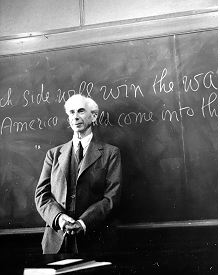
Freethinker: Going back to your four elements of thought, the third one was reflection. What do you mean by this?
McCarthy-Jones: I mean the space and time to make decisions. In A Room of One’s Own (1929), Virginia Woolf says that ‘a lock on the door means the power to think for oneself’. She effectively puts a financial price on the freedom of thought, saying that five hundred pounds a year gives us the power to contemplate – in the sense that you need to earn a certain amount per year in order to have the space, luxury and privilege to think freely. So there are socioeconomic factors which might make the ability to think freely into something of a privilege, because it does take time, resources and space. The question then is how we make that available to everyone, rather than just to a cognitive elite who are allowed to do the thinking for the rest of us – which I think is very dangerous.
Freethinker: That seems to be a theme that goes right back to Plato: the idea that you need σχολή, leisure, in order to think properly. Because if you are constantly busy earning a living, and if you live in cramped quarters where there is no space for you just to sit by yourself and reflect quietly, how are you ever going to have time to make progress with your thoughts? Which leads to the question, how can we as a society ensure that everyone has the time to think for themselves and has the ability and space to do so?
McCarthy-Jones: Some will point to universal basic income as enabling this type of situation. This solution may or may not be the best in other respects, but one of its potential implications would be that it would support democracy and would give people, should they choose, the space to engage in activities like thinking freely, which the confines of capitalism might not do.
From reading writers like Noam Chomsky or Howard Zinn, my sense is that a hundred years ago, the average person was more easily able to engage in free thought and reflection upon society than they would be today. We seem to have gone backwards since then.
Freethinker: I suppose that these days, leisure time is big business for the entertainment industry – football, Netflix, shopping, holidays, and so forth. Even if most people have leisure time, it is viewed by these industries as a commodity which they do everything they can to capture. So perhaps one challenge for all of us is simply to resist throwing away our free time on organised fun, if you like. And maybe go to the library instead (if it has not already been closed down).
McCarthy-Jones: Another point is that you have to have the desire to think in the first place. Thinking is not easy. It provokes anxiety, particularly when you reach conclusions you feel ethically you have to act on. The easier course of action is to not know what one should be doing and just continue what one is doing.
You also have to have the sense that there is some point to your thinking. Because if you come to certain conclusions about your life, but you are not in a position to do anything with the conclusions you have reached, whether financially, socio-economically or more generally, you can start to feel powerless over your own life. If you are going to reach conclusions which you cannot do anything about, why even go down that road in the first place? Therefore it is important for free thought that our society should be one in which people feel empowered have a stake in their local community – so that their thinking matters. So that their ideas can result in action, rather than being merely for intellectual amusement.
‘Thinking is not easy. It provokes anxiety…’
Freethinker: Your fourth element is thinking out loud. How does this work?
McCarthy-Jones: Thinking takes courage – sometimes a very high level of courage. People like Jon Ronson have talked about the culture of online shaming, the incentives to pour scorn on other people’s views, which online media does, whether intentionally or unintentionally. This sets a barrier to free thought: for many people, the costs of thinking out loud in public are not worth the benefits. To the point that if one wants to think freely in public today, one needs to be either a billionaire or reckless or not aware of the dangers. This is an unreasonably high barrier.
Freethinker: In your book you propose that thinking is not just done in your head, but can also be done out loud, with other people, or in writing, say in a diary, or even through other activities such as searching the internet. How wide would you draw the definition of thinking?
McCarthy-Jones: There are two points here. One is the relationship between thought and speech, and the other is the social element of thinking. As to writing or typing, I suppose there are two kinds: one, where you know in advance what you are going to write, and the other, when you do not, but discover what you think by the process of writing it down. I am in that second camp: I never know what I am going to write until I start writing it. One of the things that came out of the book that surprised me was the idea that thinking may be at its most free when it is done with other people. The classical Western idea of thought is epitomised by Rodin’s Thinker: that it is an activity done on your own and in your head. But if a key purpose of thought is to reach truth, then we often seem to do that better when we think with other people.
In the book I cite a study which showed that when people were trying to solve the Linda problem, it was found that two people working together were more likely to reach the right answer than one person alone. And three people working together were more likely to reach the answer than two or one.
‘Thinking may be at its most free when it is done with other people.’
Freethinker: What would be the ideal group size?
McCarthy-Jones: The study on the Linda problem only went up to three. I imagine there will be diminishing returns from increasing the number beyond a certain point, but I do not know what that would be.
The name of your august publication, the ‘Freethinker’, suggests a very individualistic approach. I prefer ‘freethinking’, which I used in the title of my book, to denote an activity which can be shared.
Freethinker: If thought is a social activity, what implications does that have for speech? Is free speech an integral aspect of free thought?
McCarthy-Jones: From a legal perspective, as things stand, there is a very clear distinction. For obvious, practical reasons, it helps to keep the courtroom clean. You have an inner world, the forum internum, where thought happens. Then you have an external world, or forum externum, where speech happens. Unfortunately, this division does not stand up to any kind of philosophical or psychological inquiry, because thought extends out into theexternal world, while speech reaches into our internal world. If we are talking to somebody else in public and we are engaged in good faith truth seeking with them, I would see that as our thinking together. So if thought is an absolute right in human rights law, then I would see that kind of public speech as being in essence thought, and consequently in need of absolute protection.
Freethinker: You also suggest that a diary could be a form of externalised thinking.
McCarthy-Jones: Yes, that would be a kind of external mind. We are thinking through writing, therefore it is happening in the external world. We are making a mark on the external world. Somebody else could read our diary. The implications of this view would be quite profound, because if we recognise writing a diary as a kind of thought, we will want to give it the absolute protection of freedom of thought. Thus nobody will be allowed to look in our diaries – and they will not be able to be used as evidence against us in court. The same would apply to Google searches, to the extent that they represented our thinking: if the right to freedom of thought is absolute, then these searches should be treated as absolutely private.
Freethinker: And you would be in favour of this?
McCarthy-Jones: Yes. There are always slight concerns that this rule could be misused for what I would see as being substantial harms. But in general, if we could come up as a community with what we felt thinking was and give an agreed definition, then I think I would be happy to give external kinds of thinking absolute protection, just because of the importance of thinking to us. Because once we start limiting our freedom to think, everything starts to fall apart.
Freethinker: As far as speech is concerned, where would you draw the line between speech that is thinking and so should be absolutely protected, and speech that is not?
McCarthy-Jones: This can tie in fairly easily to existing jurisprudence, for example on defamation and true threats, by which I mean actual intentional threats of physical harm.
Freethinker: What about hate speech? Is this a greyer area? How far should speech about, say, protected characteristics or controversial topics be limited by the law?
McCarthy-Jones: That is a complicated question and I do not have a good answer. The only thing I would emphasise would be the importance of ensuring that forms of good faith truth seeking do not get penalised under hate speech laws. And that should be a matter for the courts to determine.
Freethinker: What about a middle ground case where someone is not particularly seeking the truth, but neither are they particularly intending to harm someone else – just having a casual conversation?
Freethinker: You also mention a 2021 UN report on freedom of thought, by Ahmed Shaheed, the Special Rapporteur on freedom of religion or belief. What is the significance of this report?
McCarthy-Jones: The UN report discusses four ‘proposed attributes’ of free thought: ‘a) freedom not to disclose one’s thoughts; (b) freedom from punishment for one’s thoughts; (c) freedom from impermissible alteration of one’s thoughts; and (d) an enabling environment for freedom of thought’.
My concern is what counts as a thought in the first place – whether it is confined solely to what takes place inside our heads, or whether it extends into the external world. If the right to freedom of thought is defined so as only to cover the forum internum, as a psychologist, I would consider that right not fit for purpose.
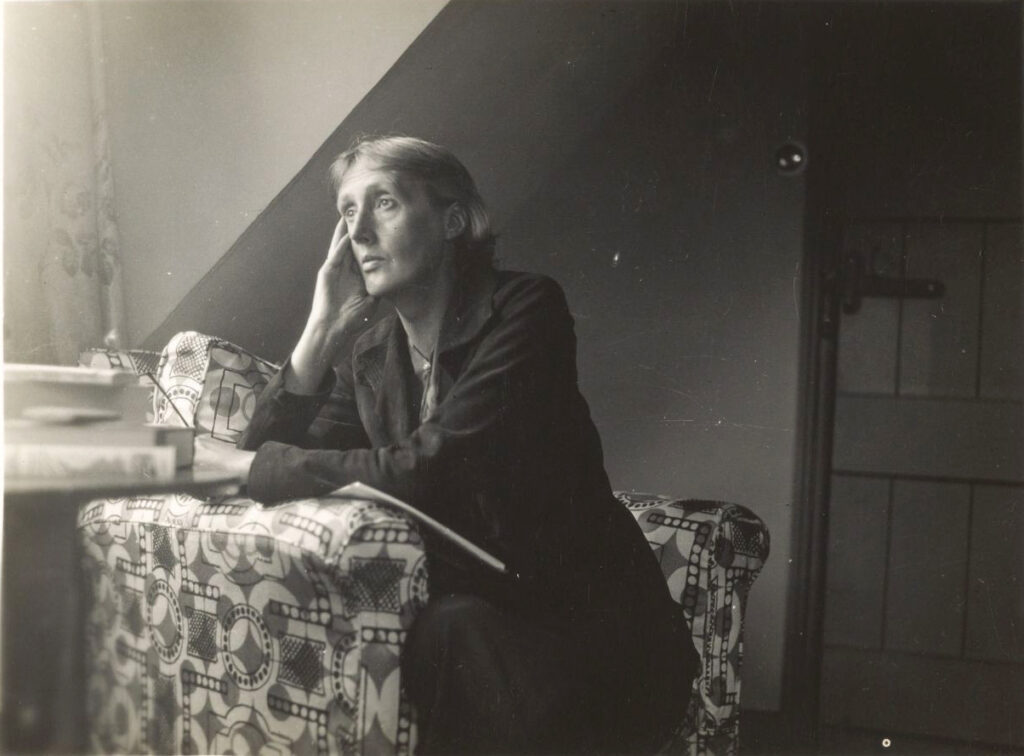
Freethinker: In your book you also talk about access to information. Do you think this is a crucial part of the right to think freely?
McCarthy-Jones: Yes. If free thought is a kind of input-output mechanism, you need the input of information to be able to think freely. That speaks again to the importance of other people’s free speech as an input to your free thought. I think we need to create a redemocratisation of thought in the sense that this activity should not be left to a special class of academics or politicians who have special protections. If we are all voting in a democracy, we should all have the strongest protections for our free thoughts.
McCarthy-Jones: If we want to decide whether such a conversation should count as ‘thought’ I guess it is best to go back to what the right to freedom of thought is trying to protect. In addition to truth-seeking, this right is presumably trying to support our ability to govern ourselves, thereby creating a society that can be meaningfully said to be democratic. If a casual conversation helps support our ability to govern ourselves, then it could plausibly be deemed a form of external thought. The philosopher Joel Walmsley and I have been trying to think about this issue recently, but we really need the legal community to weigh in on the promise and problems of the whole idea of external thought.
Freethinker: Fundamentally, why is free thought so important? Why do we all need this ability to think freely – what can it do for our lives?
McCarthy-Jones: As we mentioned earlier, a key factor is self-government: the idea that we are autonomous creatures who can make decisions and be in control of our own lives, and that it is our ability to decide and make choices that in some sense contributes to our sense of dignity as thinkers. If we cannot think freely, we cannot be self-governing creatures.
Freethinker: Do you have any plans for another book?
McCarthy-Jones: Writing Freethinking has made me interested in trying to understand the democratic process better. I had not fully appreciated the intersection of free thought and democracy, and also the intersection of democracy and human rights.
One concern which came out of the book is how the right to freedom of thought can be developed in a democratic way, and whether it makes sense to talk about the democratic development of human rights – as opposed to, say, their evolution by unelected judges in the European Court of Human Rights. Human rights law seems to stand over our democratic institutions and determine what can and cannot be done in society. When people claim, for instance, that ‘human rights are not up for debate’, that seems contrary to the very idea of free thought and to rely on authority and legal norms rather than on reason. There seems to be a sense that human rights are revealed truths which we must get on board with rather than being the endpoint of a deliberative process.
*This piece is my last as editor of the Freethinker; from 1 April, Daniel Sharp will be taking over. I wish him and our readers all the best – EP.


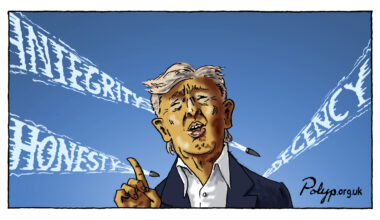
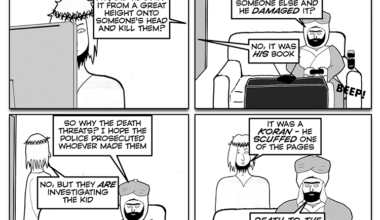


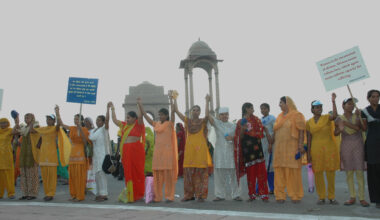

Your email address will not be published. Comments are subject to our Community Guidelines. Required fields are marked *
Donate